Comparing full spectrum vs. broad-spectrum CBD oil comes all down to other natural plant compounds the extract contains. However, it is also important to take into account that there is a third type of CBD oil, which would be CBD isolate.
CBD is now relatively popular because of the benefits associated with it. Due to its influence on the endocannabinoid system, this product can provide certain effects, such as relaxation or perhaps reduced inflammation. It allows the user to get the best effects from cannabis without actually consuming it and acquiring the “intoxicating” effect.
Hence, whether you’re looking forward to relaxing or perhaps reducing the physical complaints that bother you daily, CBD can be a good option. But which option should you choose?
What is Full Spectrum CBD Oil?
Full-spectrum CBD oil contains all the substances that compose the hemp plant. Therefore, it contains cannabinoids, terpenes, and also flavonoids.
It’s important to note that CBD and THC are cannabinoids. CBD doesn’t have an intoxicating effect, while THC is responsible for the “highness” associated with the cannabis plant. THC and CBD are both the common cannabinoids present within hemp, with the former being more abundant than the latter.
Full-spectrum CBD oil may contain a small percentage of THC. Therefore, the availability may be reduced in certain states as it is illegal to sell CBD oil with THC in most places.
This type of CBD oil has all the cannabinoids that promote the “entourage effect” on the human body, which work together to have the therapeutic effect linked to CBD.
What is Broad-Spectrum CBD Oil?
Broad-spectrum CBD oil retains some of the same compounds found in full-spectrum CBD. However, the main difference between both oils is that broad-spectrum CBD oil does not contain THC. Hence, the risk of acquiring the psychoactive effects of this substance is null. It’s still possible for people to experience the entourage effect and obtain all the benefits from CBD oil.
What is CBD Isolate Oil?
Another option you can take into account is CBD isolate, which is the “purest” CBD you can find in the market. It does not contain any other compound found within the C. Sativa plant. Therefore, obtaining the benefits from the entourage effect is not possible.
Recent research has suggested that CBD isolate could have certain benefits.
Most of the time, CBD isolate is a flavorless and odorless compound. However, it is also possible to find flavored presentations, which can make the compound easier to consume for some people. CBD Isolate can be a good alternative to regular CBD if you would like to avoid THC overall.
Production Process
It’s possible to find CBD oil products that were extracted using different methods. For instance, the most popular is CO2 extraction, but the ethanol extraction process can also be a good option if the whole process is conducted properly.
Broad-spectrum CBD often goes through an extra step to remove all the tetrahydrocannabinol (THC), a process known as “flash chromatography.” On the other hand, the full-spectrum extract contains all the compounds found within the cannabis plant.
Here are all the production processes used to extract oil from the hemp plant and then manufacture broad-spectrum and full-spectrum CBD oils.
CO2 Extraction
CO2 extraction is perhaps one of the most efficient methods of CBD extraction. The final product is less likely to have harmful substances. The process implies using carbon dioxide at lower temperatures. Then, the compound is contained under high pressure before being applied to raw hemp.
When such material is blasted through the organic matter, all the terpenes and cannabinoids, including CBD extract, are obtained. All the excess liquid is evaporated, leaving us only with CBD oil that contains THC.
Flash Chromatography
This process is utilized to differentiate all the compounds extracted from the hemp plant from THC. It is quite complex and requires a specific technique. It is necessary to mix solvents to complete the whole process.
Additionally, the compound needs to be washed several times before you can obtain the THC-free extract. However, the CBD content may be greatly reduced during the process.
Ethanol Extraction
This extraction method utilizes high-proof alcohol, typically pure. The plant is soaked in alcohol for a while to release all the compounds and oils. Next up, the plant material is strained, leaving behind a residual substance containing CBD and all other cannabinoids, including THC.
You must evaporate the excess liquid once you’ve separated the plant material from the liquid. You will obtain full-spectrum CBD oil as a result of this extraction.
Difference between Full and Broad Spectrum CBD Oil
So, what is the difference between full-spectrum and broad-spectrum CBD Oil?
It all comes down to the compounds each CBD oil contains. For instance, a CBD product that includes all the naturally occurring hemp plant extracts (including THC at a percentage of up to 0.3%) is considered to be full-spectrum CBD.
While broad-spectrum CBD contains many of the compounds the cannabis plant has, it is THC free most of the time. Sometimes, broad-spectrum CBD can have slight traces of THC.
As mentioned, CBD isolate is the third most common presentation of CBD. It is pure CBD and does not contain any other of the compounds within the cannabis plant.
It is important to learn the difference between these three terms as it is common for manufacturers to “mix up” the words and use them interchangeably. This could lead to misinformation and misuse of the products, especially because these products do not go through much regulation.
Pros and Cons of Full Spectrum CBD Oil
One of the main reasons why many people “pass” from using full-spectrum CBD oil is the slight percentage of THC it contains, which is never above 0.3%. This THC quantity is not enough to cause the euphoric effect associated with cannabis.
Despite that, the THC levels can increase in more concentrated products. This makes it possible to find tinctures with about 2mg per ml of THC, which may cause the “high.”
Furthermore, recent research shows that full-spectrum THC can produce the entourage effect, which happens when all the hemp plant compounds and CBD act together to bring the benefits associated with CBD products. Furthermore, it is said that the presence of THC may increase such an effect.
- It can help with seizures.
- It’s a natural antioxidant.
- It can help you reduce stress, anxiety, and physical pain.
- It has anti-inflammatory properties.
Pros
- A large dose may cause the person to feel “high.”
- It’s possible for people who intake full-spectrum CBD to trigger a positive result on drug tests. Drug tests often look for THC, which is present in full-spectrum CBD products to a certain degree.
Cons
Pros and Cons of Broad-Spectrum CBD Oil
Broad-spectrum CBD oil has a simpler structure, but it still contains some of the essential substances found within the cannabis plant, including terpenes and cannabinol (CBN). Cannabichromene is also present within its structure. Hence, it can trigger the entourage effect on the user, but to a lesser degree compared to full-spectrum CBD.
- It may have antibiotic properties.
- It may have an anti-inflammatory effect on the body.
- Also, it can be helpful for people who struggle with seizures.
- While it doesn’t contain THC, any product could contain trace amounts.
Pros
- We list the lack of THC as a pro, but it can also be a disadvantage as it makes it possible for you not to obtain all the benefits you would get by using full-spectrum CBD.
- Again, keep in mind that all CBD products may contain trace amounts of THC, which could trigger a positive test result.
Cons
Side Effects of CBD Oil
CBD products are not known to cause severe side effects. However, it is still possible to cause certain reactions in the user, such as an increased appetite or drowsiness. Some people have also reported experiencing irritability and agitation. In rare cases, diarrhea might be present.
It’s also possible for CBD to cause “silent” side effects. According to studies, CBD oil may lead to liver failure. It can also react with other medications. If you’re planning on using CBD oil and are taking other medicines at the moment, we highly recommend you seek advice from a health professional.
Full Spectrum CBD Oil vs Broad-Spectrum CBD Oil: What to Choose?
The choice depends on the person and how they react to the product. For instance, people who use full-spectrum CBD might be guaranteed to feel the entourage effect. Furthermore, it’s possible that the presence of THC may provide even more beneficial effects to the person.
On the other hand, broad-spectrum CBD may still trigger the entourage effect on the user to a particular degree. Still, please keep in mind that it does not contain the same cannabinoid content as broad-spectrum CBD, so the desired effect may not be as potent as desired.
You can also consider taking CBD isolates. If you react to other cannabinoids easily, an isolate can be ideal because it only contains CBD. It does not produce any entourage effect but still has a few benefits.
It can be complicated to find the best full-spectrum CBD oil or the best broad-spectrum CBD oil as every person reacts differently to the product. Hence, all you can do is experiment with the dosages until you find a way to obtain the desired effect.
Final Takeaway
Full-spectrum and broad-spectrum products are both effective in unique ways. However, it’s a fact that full-spectrum CBD may be more powerful than broad-spectrum alternatives, but the latter might be too potent for certain users.
If you’re interested in using CBD as an alternative remedy to conditions like anxiety, depression, or chronic pain, we highly recommend you research the company and choose one that conducts third-party lab testing to confirm the contents of the remedy. It’s also recommended to see a physician before taking any CBD product to prevent any potential unpleasant reaction.
Frequently Asked Questions
Does CBD show up on a Drug Test?
Most drug tests will look for THC. Hence, it is highly unlikely for CBD to show up on a test – that only if you’re not using a powerful full-spectrum CBD. However, keep in mind that some drug tests look for CBD, which means that it could appear in the results.
If you think you’ll go through a drug test soon and would like to avoid any problems, we highly recommend using broad-spectrum or isolated CBD products. If not, stop its use altogether. Any CBD product may contain a slight amount of THC.
What Spectrum of CBD Oil is best?
Choosing one option over the other can be complicated as each individual reacts differently to the compound. However, if you’re trying to avoid THC, it is highly recommended to choose broad-spectrum or isolate CBD to prevent any possible side effects.
Since the FDA does not regulate any CBD products, we highly recommend you choose CBD products that were third-party tested. This way, you can find out everything you need to know about the remedy and its compounds.
Is Full-Spectrum CBD Oil Stronger?
Full-spectrum CBD Oil may have a more powerful effect than CBD isolate and broad-spectrum CBD because it contains all the compounds found within the cannabis plant. Therefore, we highly recommend you proceed with caution before taking this remedy.
Is Broad-Spectrum CBD Oil Effective?
While CBD oil does not contain all the cannabinoids found within the hemp plant, it is still quite effective and can be helpful in treating several physical and mental health conditions.
Does Full-Spectrum CBD Oil make you feel high?
It’s essential to keep in mind that full-spectrum CBD contains THC, which is responsible for the intoxicating effect associated with the cannabis plant. However, CBD on its own (and if you take the recommended dose) will not make you feel high.
However, if you take a high dose of a powerful full-spectrum CBD oil, the THC you consume may be enough to start feeling the euphoric effect. Hence, if you’re using one of these products, we recommend taking a small dose and then adjusting it accordingly.
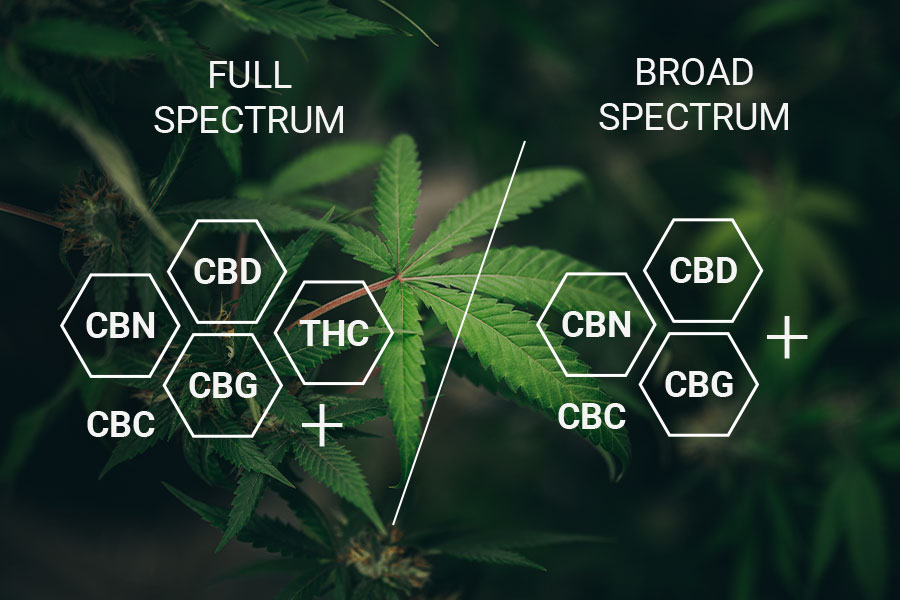
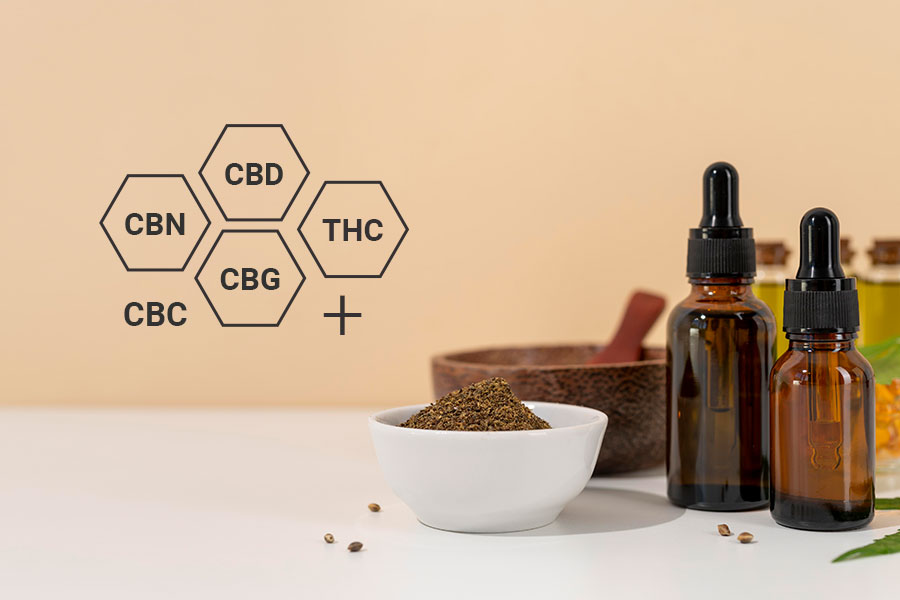
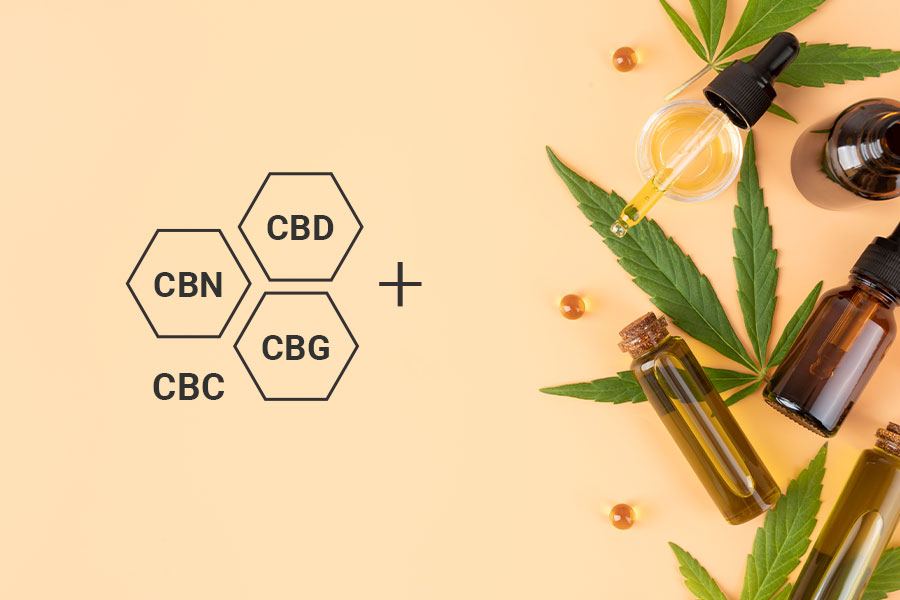
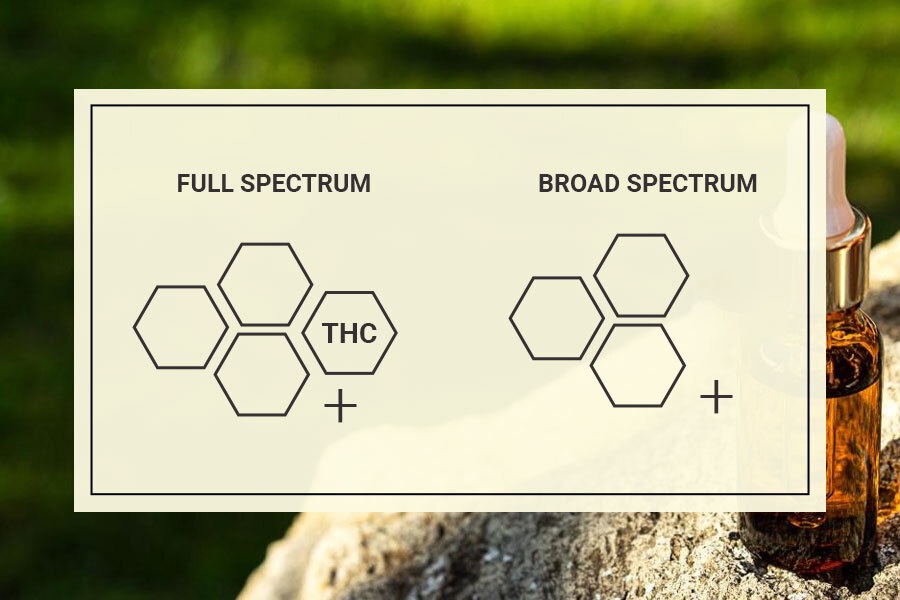

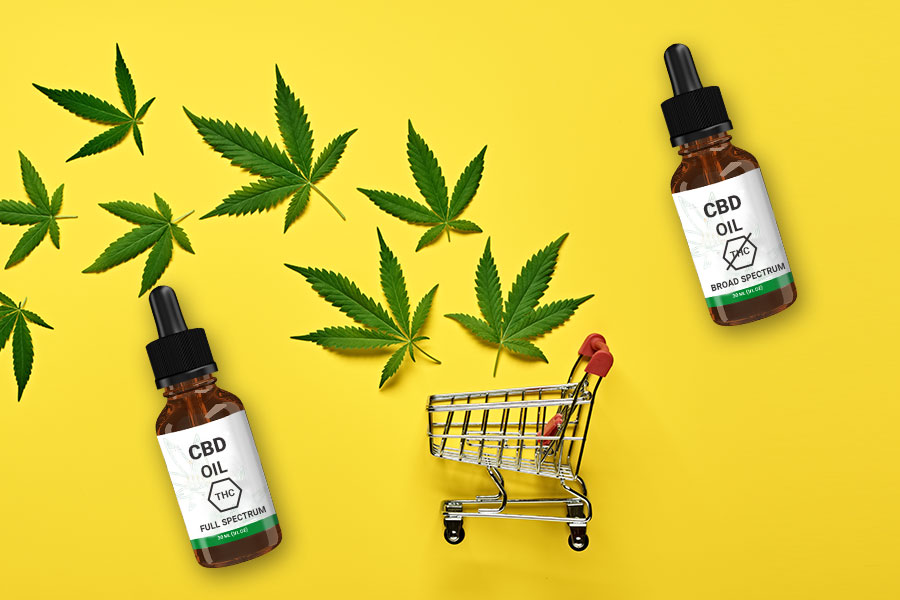

Leave a Reply